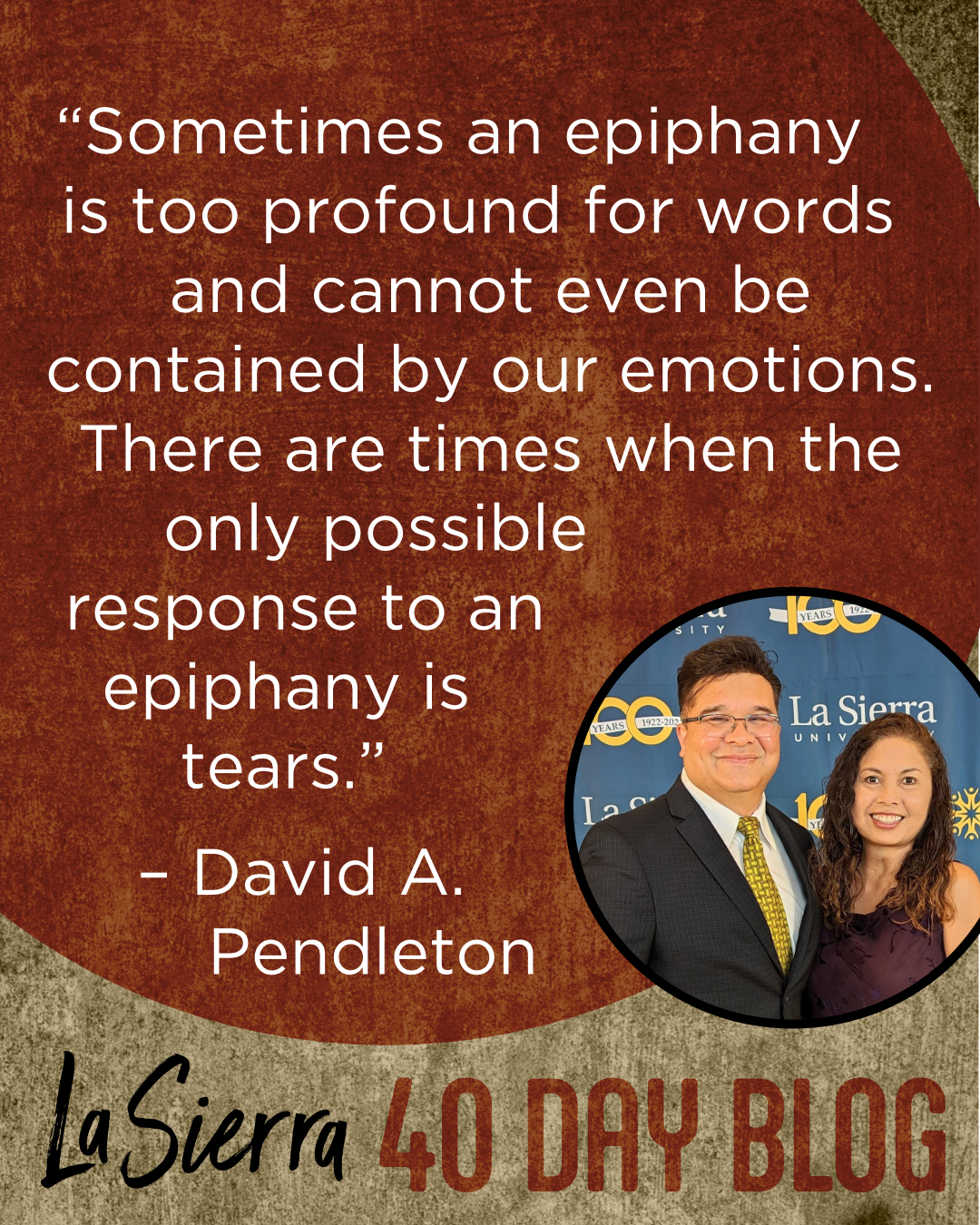Epiphany. Today, we use the term to generally mean an experience of a sudden and striking realization. In common parlance, the word epiphany is used to describe a scientific breakthrough or a religious or philosophical discovery.
Historically, it was not so much an epiphany but The Epiphany, the manifestation of Christ to the Gentiles as represented by the Magi (Matthew 2:1–12), when the wise men from the East visited the Christ child and bore gifts, bearing witness to his reign over the wider humanity, not just the Jews.
It happened when Archimedes discovered the law of the displacement of water while taking a bath. It happened to the Apostle Paul while he was yet known as Saul traveling the road to Damascus to persecute followers of the Way. It happened to British writer G.K. Chesterton while looking at a dandelion. It happened to French novelist Marcel Proust’s fictional alter ego while dipping a French cookie into a cup of tea.
In the insightful and prescient words of writer Maria Popova, we read:
“Every once in a while, the curtain of the ordinary parts and we touch the miraculous — the sense that there is another world not beyond this one but within it, a mirror-world any glimpse of which returns our own more luminous and full of wonder.
This can never be willed, but one can be willing for it — a willingness woven of two things: total wakefulness to reality and total openness to possibility.”
These words of Popova remind us that we can witness revelation, or be recipients of profound disclosures, recipients of epiphany in many ways.
Richard Rice
For years theology professor Richard Rice was my professor here at La Sierra University. And while he was most noted for his theological notions of the Openness of God, he taught and wrote about a whole host of profound theological ideas, concepts, doctrines, and propositions.
For example, from Rick I learned to appreciate that humankind is a unity, both individually and collectively. We are as individuals comprised of mind and body, physical matter animated by the divine spark of life from God. There is a unity to each human being as a divinely created creature.
And we are also unified collectively or in the aggregate. Human beings are social creatures, meant not to be lone individuals, as mistakenly-celebrated rugged individualism tends to teach. We are a family, interconnected. The Bible in the Book of Genesis tells us that it was the LORD God who said, “It is not good for man to be alone.” Long before Aristotle said human beings were social creatures, or political animals, God had declared this fact and wove our social natures into our very DNA. We are communal, interconnected, and interdependent by design. The human family is genuinely a family.
Paul Landa
The late Paul Landa, long-time professor of church history at La Sierra, was my professor when I took a number of church history courses as an undergrad and also as a grad student. He shared with me a personal story of when he attended a performance of Mahler’s Symphony Number 2 (the Resurrection Symphony). He went along with a colleague, a former dean of the La Sierra University School of Religion, if I recall correctly.
As he told the story, he had read up on and was well versed in the factual details of Gustav Mahler and his Resurrection Symphony. After it was over, and during the lengthy applause and standing ovation, he turned to his colleague to make a comment and saw his colleague with tears streaming down his cheeks.
Paul reminds us all that often when we get caught up in intellectual pursuits, we confine revelation solely to propositions, doctrine, and dogma.
Sometimes an epiphany is too profound for words and cannot even be contained by our emotions. There are times when the only possible response to an epiphany is tears.
Larry Geraty
I never had the privilege of taking a class from Larry Geraty, former president of La Sierra University. But I did briefly work with him from 1994-95, when he was president and I was Associate VP for Student Life.
I wasn’t in the inner circle, but I was close enough to observe him. His leadership style was inclusive, collaborative, and consultative. He wasn’t afraid to make a tough decision. But he always invited input from all those who would be impacted.
And he bent over backwards to be a presence on campus, recognizing that everything he said and did reflected upon the university. It was his unique version of leadership – walking around.
There was a story that circulated at the time. Larry was not known as one to drink coffee. But a student working late one night in the student government offices saw that Larry’s light was on late too. So the student government officer invited him for a late night cup of coffee and conversation. Without hesitation, Larry accepted the offer and gave a student an opportunity to provide input and insight. That’s the sort of leader Larry was.
For me it was a powerful example of presence, of genuinely interested leadership.
From Rick, Paul, and Larry I have learned a great deal. As we proceed during these forty days toward Easter, I am reminded that God continues to manifest Godself in diverse ways – even through people. And the lessons to be learned may not be ground-breaking or earth-shattering theological revelations – but they remind us in small ways of what God calls us to do and to be.
We need to be totally wakeful to the divine and open to possibility. I thank God for the lessons God has taught me through the people around me.

